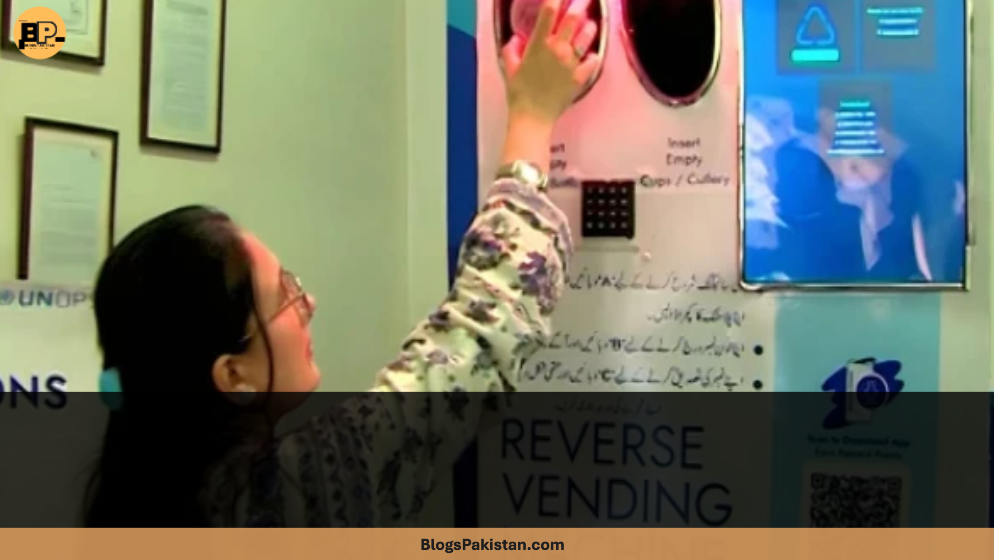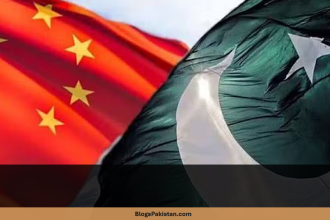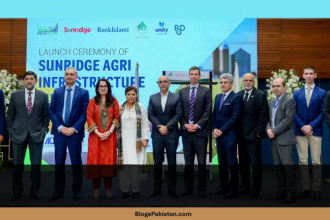In an era where environmental challenges are as pressing as ever, Lahore, the vibrant heart of Punjab, is setting an example for cities worldwide. The Punjab government has joined hands with a private firm to tackle the menace of plastic waste through an innovative recycling program. With the Chief Minister’s Green Credits Initiative leading the way, this program promises not only to clean the streets but also to put some cash back in the pockets of the city’s eco-conscious citizens.
A Green Revolution: How It Works
The initiative aims to manage the recycling of single-use plastic bottles throughout Lahore, offering residents monetary rewards for their contributions. The partnership has facilitated the installation of locally engineered recycling units, which incorporate advanced Chinese technology. This recycling infrastructure will be strategically positioned in four prominent universities and various commercial hubs across the city.
The operation of these machines is as straightforward as a walk in the park. Simply press Button A, place the bottle inside, input your phone number, and press Button B. The machine then tallies up your green credits, which can also be tracked using a dedicated mobile application. Talk about making environmental conservation as easy as pie!
Bottles for Bucks: Cashing in on Trash
Lahore residents can earn up to Rs. 1,000 by submitting their used plastic bottles—twenty 1.5-liter bottles or forty half-liter bottles, to be precise. And here’s a fun twist: the program actively involves the city’s 18,000 scrap collectors. These industrious individuals can register through the app to have their bottles collected directly, earning cash payments in return.
According to Gulfam Abid, the chairman of the partnering company, Lahore churns out approximately 500 tons of plastic bottle waste each day. This initiative doesn’t just aim to reduce that staggering number but also to repurpose the recovered plastic into bricks, pavement tiles, and materials for road maintenance. It’s turning trash into treasure, literally!
Leadership Speaks: A Push for Plastic-Free Punjab
On International Plastic Bag Free Day, Chief Minister Punjab Maryam Nawaz Sharif applauded the province’s efforts to shift from plastic bags to eco-friendly cloth and paper alternatives. “Alhumdulillah, Punjab is moving towards becoming plastic-free day by day,” she declared.
Maryam Nawaz emphasized that while plastic bags offer temporary convenience, they cause long-lasting environmental harm. “Humans are damaging their land, rivers, air, crops, and health with plastic pollution,” she noted, highlighting how plastic bags can impede soil fertility, clog drainage systems, and harm aquatic life. The use of plastic is also linked to serious health issues, including cancer.
To combat these dangers, environmental laws are being strictly enforced in markets and factories throughout Punjab. A comprehensive awareness campaign is underway in schools, colleges, and communities to promote the idea of a Plastic-Free Punjab. The introduction of recycling-friendly alternatives is a cornerstone of this initiative, underscoring the province’s commitment to sustainable development.
A Community Effort: Engaging Lahore’s Youth and Citizens
This recycling initiative is not just about machines and monetary incentives; it’s about fostering a community-wide commitment to sustainability. By engaging Lahore’s youth and citizens, the program seeks to instill a culture of environmental responsibility.
Education plays a pivotal role in this endeavor. Schools and colleges are at the forefront of spreading awareness about the importance of reducing plastic waste. By educating young minds, the initiative aims to create a generation of environmentally conscious individuals who understand the impact of their actions on the planet.
The Bigger Picture: Environmental and Economic Benefits
The benefits of this initiative extend beyond immediate environmental gains. By reducing plastic waste, Lahore is taking a significant step towards improving public health and urban sustainability. Cleaner streets and waterways contribute to a higher quality of life for residents and a more attractive city for visitors.
Economically, the initiative promises to boost the local recycling industry, creating jobs and fostering innovation in waste management. By turning plastic waste into valuable products like bricks and tiles, the program demonstrates a circular economy model that could serve as a blueprint for other cities in Pakistan and India.
Conclusion: A Model for the Future
Lahore’s partnership with a private firm to manage plastic waste is a bold and innovative step towards a cleaner, greener future. By incentivizing citizens to participate in recycling, the city is not only reducing its environmental footprint but also empowering its residents to be part of the solution.
As Punjab continues its journey towards becoming plastic-free, the rest of the world watches with interest. This initiative serves as a reminder that collective action, driven by innovative solutions and strong leadership, can turn even the most daunting challenges into opportunities for positive change.










